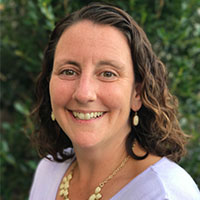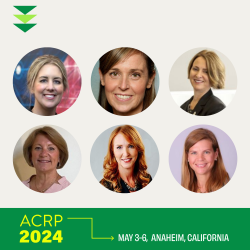While there is a well-known shortage of clinical research professionals, there are nonetheless many people interested in a career in this area. A major hurdle is the lack of entry-level positions, with most roles requiring two or more years of experience. To help resolve this issue, the clinical trial operations organization at Merck & Co (known as MSD outside the U.S. and Canada) has developed a variety of early talent programs.
“We’re putting in place entry-level programs to attract, develop, and retain diverse early talent,” says Kim Jochman, PhD, RAC, Senior Director, Medical Writing, at Merck. “This builds on the robust summer internship program we’ve had for many years. We now have permanent positions designed to build the bench from the ground up, giving talented and motivated people a way into a clinical trials career.”
The recruitment process for these positions is highly competitive. “I’d advise applicants for entry-level roles to build a resume that shows enthusiasm for some aspect of clinical research outside their current role – whether this is as a student or employee in another sector,” states Jochman. “Candidates can also strengthen their application by taking advantage of the many online and other resources related to clinical trials, including classes. This shows that they are ‘running toward’ clinical research as a career, rather than ‘running away’ from their current role.”
Entry-level roles within the clinical trial operations organization include an Associate Medical Writer role and a Clinical Trial Coordinator (CTC) position.
The Associate Medical Writers rotate together as a cohort through specialty groups within the Medical Writing department, learning hard and soft skills, and with the option to shadow various roles and participate in initiatives based on individual interests. “If recruits are fascinated by technology, they can help us find efficiencies in current jobs,” says Jochman. “If they are passionate about diversity, equity, and inclusion, we have a wide range of initiatives for them to join. There is plenty of room for individual exploration.” After about 18 months of rotations, they transition into one of the company’s therapeutically aligned writing teams and start contributing more independently to regulatory documents of increasing complexity.
CTCs are provided with fundamental training in the clinical research process and get hands-on experience working with trials throughout all phases, from feasibility through study closeout. During their time in the program, they are also exposed to various other job roles and given developmental opportunities to help find the best fit for their next level role. Interested candidates can either apply directly or through an intern-to-hire program.
Building the Bench: Developing Early Talent
Join Kimberly at ACRP 2023 [April 28 – May 1; Dallas, TX], where she’ll provide insights from one clinical trial operations organization while a panel of early talent team members will share how they have grown within the clinical trial operations space. View complete schedule.
Bringing these entry-level roles on board in cohorts provides support throughout the process. “Career transitions can be scary, whether new recruits are coming from academia or from other professions,” notes Jochman. “By recruiting in cohorts, the recruits can learn together and support one another as they learn. We cover the full breadth of roles available within clinical research, and how these advance the bigger picture of getting new medicines to patients.”
“This approach has been very successful to date, with strong performance and promotions among participants,” concludes Jochman. “These programs are proving to be a worthwhile investment in the future of clinical research at Merck. Looking ahead, our goal is to give participants a positive experience that incentivizes them to stay, with a supportive and inclusive workplace and exciting development opportunities.”
Author: Jill Dawson




